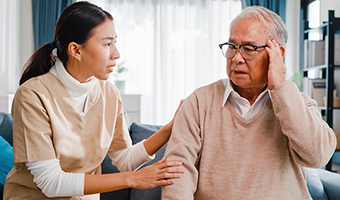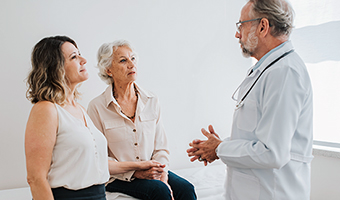How a Professional Caregiver Can Help Manage Your Senior's Medications
After the doctor prescribes a prescription, your senior has an important task — use the medicine correctly and as scheduled. Medication takes time to build up in the body. So, it’s important not to skip a dose.
And yet chronically ill patients have been observed using their prescribed medication only 50 percent of the time. So, there is a common lack of follow-through, and it’s a good idea to consider professional assistance, someone experienced in facilitating care plans that involve prescriptions. You may consider home care services. Here's why it works:
1) Professional Caregivers Manage Adherence
It’s not uncommon for an elderly loved one to live with a health condition. Illness related to aging like diabetes, hypertension, and arthritis often require regular medication. Without consistent treatment, illnesses can grow to become life-threatening.
According to The New England Journal of Medicine review article, Drug Therapy: Adherence to Medication, “Poor adherence to medication regimens accounts for substantial worsening of disease, death, and increased health care costs in the United States.”
If you’re able to dedicate yourself to ensuring your loved one strictly adheres to a medication regimen, great. But if not, a professional caregiver can be instrumental in adherence, so your senior can experience a healthier outcome.
2) Professionals Don’t Forget
There are many reasons why an elderly loved one may skip a dosage. Being forgetful is high on the list. Meanwhile, a host of other reasons can account for missed treatment: “In responses to a questionnaire, typical reasons cited by patients for not taking their medications included forgetfulness (30 percent), other priorities (16 percent), decision to omit doses (11 percent), lack of information (9 percent), and emotional factors (7 percent)...”
Moreover, if your senior has a chronic condition, there is a tendency to neglect treatment after a few months. Per the same article listed above, “Persistence among patients with chronic conditions is disappointingly low, dropping most dramatically after the first six months of therapy.”
A dedicated professional can alleviate the responsibility of keeping up with your loved one’s medication schedule. As people, we forget – it’s in our nature, even those tasked with providing care for their aging loved one. But a professional doesn’t forget. Their sole purpose inside your loved one’s home is dedication and care.
3) A Care Plan Can Help Build a Medicine Routine
A care plan goes a long way in building daily routines for your loved one. For example, when your senior starts on a regular medication plan, it’s important to strictly follow the instructions, both the one outlined in the care plan created by your home care provider and on the drug label. A professional caregiver is trained to facilitate care plans and can even create daily routines. This person will patiently remind your elderly loved one to take the medication, and perhaps schedule something similar around the medication, which helps build consistency. Consistency breeds routines. The consistency allows your senior to transition into the drug regimen smoothly.
On the other hand, the professional caregiver can also prevent a dangerous overdose. Your senior may get confused on the medication schedule, especially if she or he lives with dementia or Alzheimer’s. So with professional assistance, you won’t have to deal with drugs being misused, misplaced or discarded.
4) Professional Caregivers Watch Carefully
Without support, your elderly loved one may struggle to keep up with the medication. And he or she may not always be honest to you or the doctor. "Patients generally want to please their physicians and will often say what they think their doctor wants to hear," according to the same review article.
Even though professional caregivers are not certified to give medical care, they can make prescription management much easier. They will notice any allergic reactions or side effects of the medication. These are essential details to quickly tell the doctor. Then, the doctor can decide on any necessary adjustments to the prescription. Should an emergency arise, the professional caregiver can promptly seek medical attention for your elderly loved one. Additionally, the professional caregiver will also keep detailed care notes of the medication schedule. You will always be notified of your senior’s situation.
5) Professional Caregivers Build a Trusting Relationship
Your elderly loved one needs strong emotional support. The senior deserves warmth and compassion, especially when this person lives with illness. When you select a professional caregiver, you are picking this person based on compatibility with your elderly loved one. The selection process aims to find the right personality match. Professional caregivers possess strong interpersonal skills. They have the training to build a trusting bond with your senior.
The reality is that failure to follow through on a doctor’s medication schedule and home care provider’s care plan can have disastrous ramifications for your loved one, including costly hospital readmission. Get more information on how you can avoid hospital re-admission for your senior loved one by clicking here.














